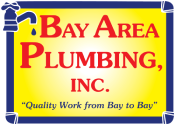Leak Detection

The pipes that make up the plumbing system in your home are not infallible, over time they are bound to leak and may need to be either repaired or replaced. If you find water on the floor, your house becomes flooded or if you happen to notice abnormally high water bills, all of these may be an indication that you have a water leak and leak detection may be necessary in order to pinpoint the cause of the problem in order for it to be rectified.
Leak detection is the process whereby the source of a leak and its location in a plumbing system can be identified, in many cases with pinpoint accuracy due to the technology and tools available to professional plumbers today. When it comes to plumbing services, leak detection plays a very important role. When performed by a professional plumber, leak detection can greatly reduce the time it takes to determine the source of a leak and enable the plumber to make the necessary repairs more quickly with minimal interruption to a customer’s home life and as a result it can also save the customer money.
The Leak Detection Process
At Bay Area Plumbing we manage the entire process, from detecting the source of a leak in your plumbing system to repairing or replacing the pipe or pipes that are leaking. We even have partners in construction that are on standby to help with water restoration in order to avoid water damage that can result from a water leak. If water extraction and dry out are necessary, they are available 24 hours a day to assist in this process.
If you believe that you may have a water leak but you are unsure of its source, we will come out to your home and talk with you in order to gain a better understanding of your concerns. If you indicate to us that there is a troubled area of which you are aware, we will then inspect the troubled area and if it appears to be a common issue we may be able to rectify the situation easily. If you are unaware of where water may be leaking from and the cause of a suspected leak is not easily determined, we will then systematically go through the home in an effort to locate the source of the leak. If the source is not easily identified, such as a hose bib that has been left on, a leaky toilet or a water heater, we may then use our high-tech leak detection equipment to help us determine precisely where the leak is located.
Once the source of the leak has been identified we will then inform you and make our recommendations on what we believe is the best approach for you to take in order to rectify the problem. If this occurrence has happened several times, you may even want to consider re-piping your home instead of just repairing the troubled section only to have another leak occur again in the near future. We normally give home owners the option to repair a pipe or to do a complete re-pipe. Whether you chose to have a complete re-pipe may depend on the age of the piping system in your home or the finances you have available at the time that the repairs are needed. If you think that you have a water leak, please give us a call and we would be happy to help you.
Common Water Leak Sources
There are many common sources of water leaks from leaky toilet flaps to water heaters and air conditioners. Toilets are a very common problem and one way we can easily check for leaks at the toilets is by putting a dye or food coloring inside the tank which enables us to see if the flapper is holding the water or water is bleeding through into the bowl. Water heaters can develop a leak inside the cast iron tank and even though water heaters are supposed to have a pan under them to catch any water that could develop, the pan is not 100% water safe. When it comes to air conditioner units, the AC condensate lines can get clogged up with algae or insects and then they would need to be cleared by pressure and cleaned out. Once this is done, we then put some bleach inside the AC pan below the air conditioner for preventative maintenance.
Another common source of water leaks is hot water pipes which tend to leak first under slabs on older homes with galvanized pipes. If the water meter is spinning, we would normally shut down the water heater to see if it stops, this can help us determine if the hot water pipes are indeed leaking. Copper piping is also a common source of leaks since it could fail after 10 years and pinhole leaks may start to appear in the pipe.
Leaking can also occur when a shower pan under a tiled shower floor fails. If we believe this to be the case we would test the pan to determine if the pan is good. If we have determined that the leak is under the slab, we then bring in our trained professional leak detector who uses a sonar machine to listen for the exact location of the leak under the slab. This sonar machine works like a doctors stethoscope and can hear sounds magnified to find the exact location of the leak. Once the location is found, we then mark the floor and now we only need to demo the marked area of the floor and find the leaky pipe in order to cut it out and repair the section of pipe. Once the repairs have been completed, we then patch the floor and make the shower ready for use once again.

